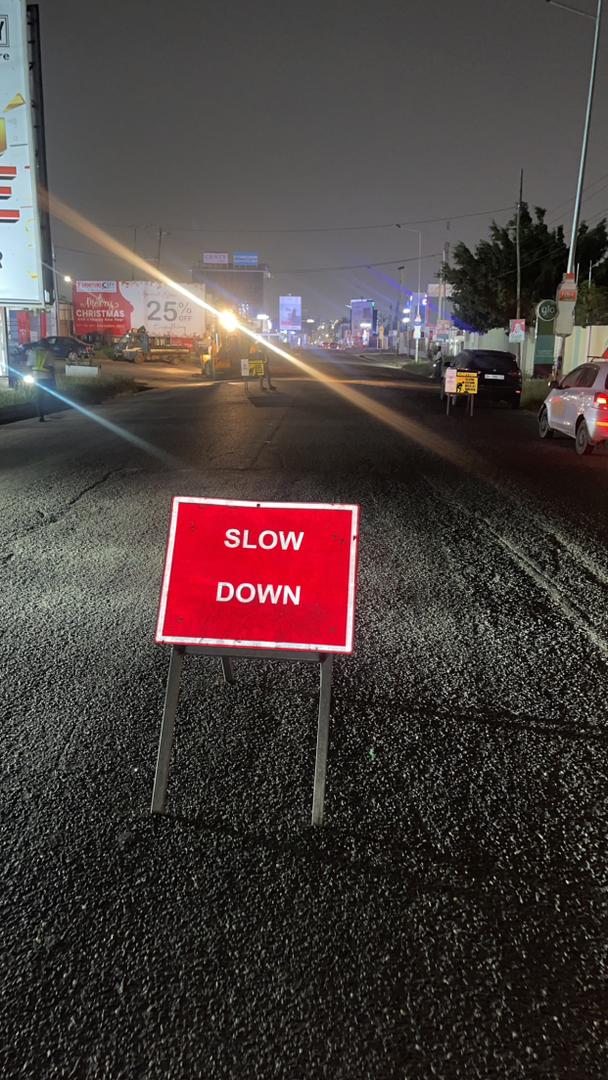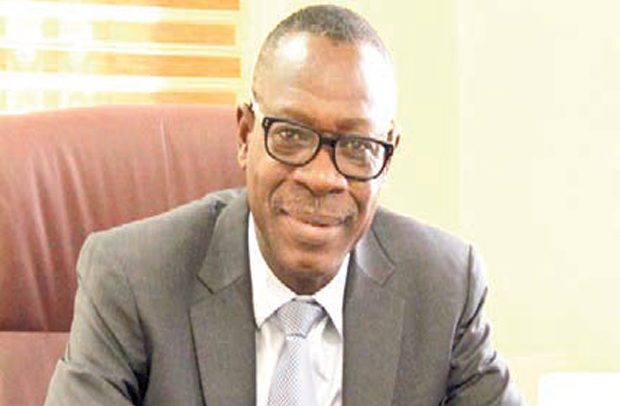
By Kizito CUDJOE
Vice President Dr. Mahamudu Bawumia has revealed that the nation is confronting a significant road repair challenge, with an estimated cost of US$12billion.
This substantial funding gap poses a serious threat to the country’s infrastructure development efforts, he admitted during a symposium in Accra to mark the 50th anniversary of Ghana Highway Authority (GHA).
“Our nation requires US$12billion to clear the maintenance backlog and bring our 94,203 kilometres (km) road network to an optimal level,” Bawumia stated.
“Currently, funding levels cover only 38 percent of this requirement; leaving a significant shortfall that translates into deteriorating road conditions, increased maintenance costs and missed economic opportunities,” he added.
The Vice President’s remarks come at a time when Ghana, like many other emerging economies, is grappling with infrastructure financing challenges. The African Development Bank reports a continental infrastructure financing gap of between US$68billion and US$108billion annually, highlighting the urgency for innovative solutions and strategic partnerships.
Against these developments, Dr. Bawumia proposed a multipronged approach to bridge the financing gap, with Public-Private Partnerships (PPPs) at the forefront. “By fostering collaboration between the public sector and private investors, we can unlock new funding streams and leverage expertise in project implementation,” he said.
He noted that successful PPPs have globally demonstrated their potential to deliver infrastructure projects on time and within budget, making them a viable solution for Ghana.
In addition to PPPs, Dr. Bawumia stated the need for exploring innovative financing models such as infrastructure bonds, road funds and toll systems. These mechanisms, he explained, can provide dedicated funding for road development and maintenance, reducing reliance on traditional budgetary allocations.
He also stressed the importance of enhancing domestic revenue mobilisation efforts. “By broadening our tax base and improving tax administration, we can generate additional revenue to support road projects,” Bawumia noted.
He therefore called for a concerted effort to promote compliance, enhance transparency and build trust in the country’s fiscal systems.
Furthermore, Dr. Bawumia advocated for strategic land-use policies to limit urban sprawl, which can significantly reduce the financial burden associated with infrastructure development and maintenance. Promoting more concentrated and higher-density urban development, he argued, can minimise the length and breadth of infrastructure that needs to be financed, leading to more efficient transit systems and reduced commuting distances.
Acknowledging the crucial role of international development partners, the Vice President emphasised a need to strengthen relationships with entities like the World Bank and African Development Bank. “By collaborating with these partners, we can access technical expertise, concessional financing and innovative solutions,” he said.
Additionally, he called for a major paradigm-shift in road financing – proposing several areas for consideration at the symposium, including the concession of high-volume roads, congestion pricing, re-introduction of tolls in 2025 and evaluating current road interventions.
“Closing the financing gap in road development is not a task we can achieve alone,” Bawumia concluded. “It requires collaboration, innovation and a shared commitment to sustainable development. Together, we can build a road network that supports our economic ambitions and enhances quality of life for our citizens.”
The symposium, held under the theme ‘Closing the Financing Gap in Road Development’, drew industry leaders, policymakers, development partners and stakeholders to discuss and deliberate on effective solutions for the country’s road infrastructure challenges.
The finance minister, Dr. Mohammed Amin Adam, added that government has set out a coordinated and integrated approach to infrastructure delivery, codified in the Ghana Infrastructure Plan 2018-2047, to ensure we have a guided framework for addressing our nation’s infrastructure challenges.
“The Ghana Infrastructure Plan outlines ambitious targets for our transportation network, including expanding the road network from 78,401 km in 2016 to 253,000 km by 2047, increasing paved roads to 70 percent, linking urban areas with multi-lane carriageways and constructing long-span bridges across the Volta Lake.”
Furthermore, he disclosed that an estimated US$660million has been invested in the road network since January 2024, with an additional planned pipeline for approximately US$509million on the way.
On his part, sector minister for Roads and Highways, Francis Asenso-Boakye, acknowledged the importance of both direct and indirect road-user charges globally, citing the example of Korea Expressway Corporation
“Our government recognises the funding gap for national road infrastructure. Government resources alone are insufficient. We need private sector partnerships and innovative financing models, including Public-Private-Partnerships and international collaborations, to ensure our roads support economic growth and improve quality of life for all Ghanaians,” he said.
The World Bank Country Director for Ghana, Liberia and Sierra Leone, Robert Taliercio O’Brien, noted that Ghana has done well in road infrastructure development; for example in terms of road density, kilometres of road performance and square kilometres of land.
“Ghana has road assets that exceed the regional average – 32.8 kilometres in Ghana versus 17 kilometres in the rest of West Africa and so nearly double. Ghana is also above the regional average in terms of rural accessibility.”
The post US$12bn road repair costs linger appeared first on The Business & Financial Times.
Read Full Story






Facebook
Twitter
Pinterest
Instagram
Google+
YouTube
LinkedIn
RSS